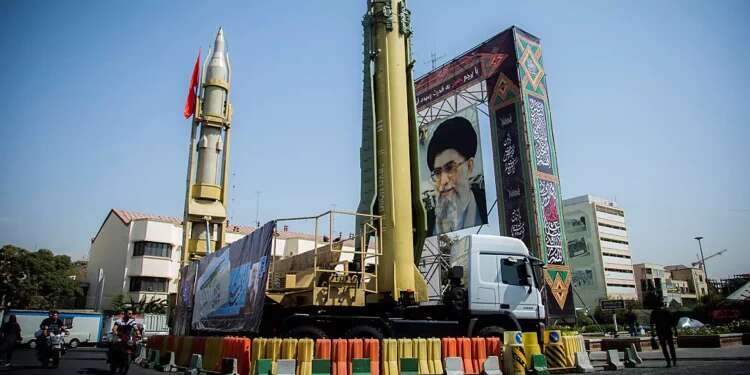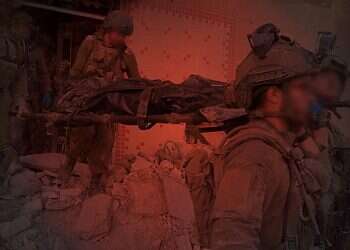Dr. Dan Sagir
Researcher and lecturer on Israel's nuclear program
Research Fellow at the Leonard Davis Institute for International Relations at the Hebrew University of Jerusalem. Author of the book "Dimona - Israel's Nuclear Deterrence"

Dr. Dan Sagir, we just had a tense week in which Iran threatened to attack us for the second time in less than four months. How much worse can this situation get?
"I believe that Israel, Iran, and Hezbollah all want to avoid a regional war. On the other hand, we are in the Middle East, and everyone wants to maintain their self-respect and the status they believe they deserve."
There's an unknown here that might not be clear to some of the public. On the surface, we are supposedly a nuclear state – which should create deterrence. But in practice, does Israel's nuclear capability, according to foreign sources, still deter Arab states? It seems Hezbollah and Iran are not particularly impressed by it.
"Iran and Hezbollah are not fazed by nuclear weapons, and likely for good reason. They know that no sane country would ever use them first. There's no connection between Israel being a nuclear state, according to foreign sources, and the current crisis. The present situation is being managed on a conventional battlefield between Israel and Iran, and against Hezbollah. Another threat front includes the Houthis, Syria, and Iraq. This strategy by the Islamic Republic has been ongoing for decades and has recently reached a troubling maturity that we now have to deal with."
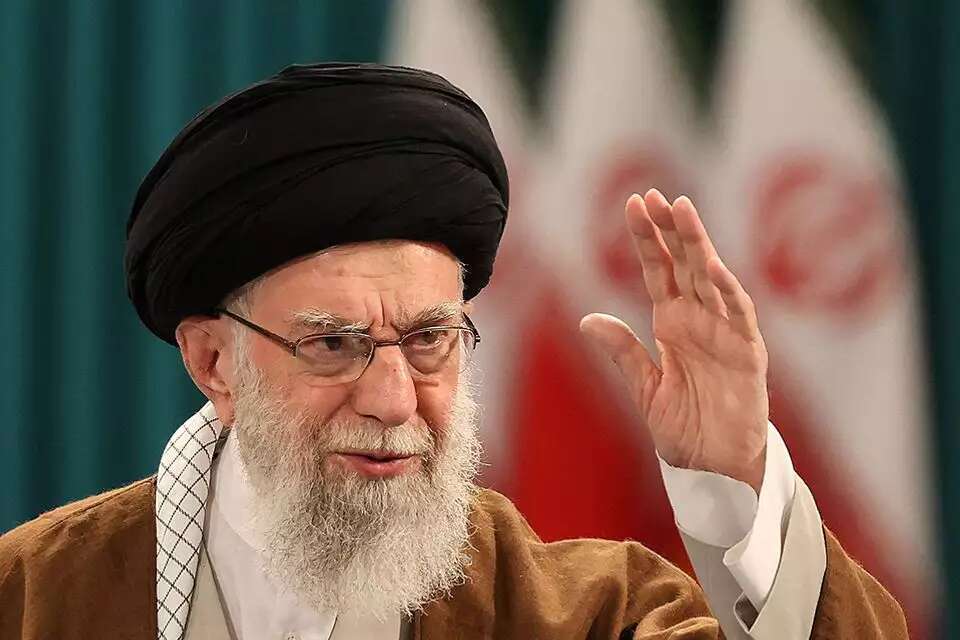
According to you, all the actors you described are not afraid of a non-conventional action. If that's the case, I wonder why this issue has surfaced in public discourse. Just last month, former Defense Minister Avigdor Lieberman said that since Iran's nuclear program cannot be stopped by conventional means, "We will have to use all the means at our disposal."
"The strange and worrying instances where public figures – from academia, former defense ministers, or the current Minister of Heritage – threaten or hint at Israeli nuclear use are mostly reckless. These are baseless claims that were never seriously discussed, and the reason is simple: The Israeli nuclear program, developed according to foreign sources, was initiated by the first Prime Minister, David Ben-Gurion, who understood Israel's inherent security problems. As various reports suggest, he believed we needed a weapon to protect us from annihilation. However, Israel has never faced, and is not facing today, an 'existential threat' since 1948."
Will China shiver from the cold?
Perhaps to better understand the current constellation, we need to understand why Iran initially pursued the development of nuclear weapons.
"The timing reveals more than anything else the reasons behind their nuclear weapons development. In 2003, about two years after the 9/11 attacks, President George W. Bush decided to invade Iraq and topple Saddam Hussein based on the belief that weapons of mass destruction were present there. For Israel, this was a gift that came with a price: The crushing of the Iraqi army and the fall of Baghdad's regime completely disrupted the regional balance, making Iran a dominant regional power in the Persian Gulf.
"Iraq also came under Iranian influence due to the Shia majority in Iraq. But more importantly, the U.S. invasion of Iraq terrified the leaders of the fundamentalist-Shia regime of their own collapse, and they decided to revive the nuclear weapons program that the Shah had initiated. This was a completely rational decision aimed at preserving their regime, not at destroying Israel or the U.S."
You speak about rational arguments, but an experiment conducted by Israeli professor Moran Cerf found that participants wearing a virtual reality helmet, putting themselves in the shoes of the U.S. president, responded to an intense missile attack of unknown origin by launching nuclear weapons. The proportion was nearly fantastical – 190 out of 200 participants, and almost all regretted the use afterward. What is the likelihood of non-rational nuclear weapons use, and how can that risk be reduced?
"I'm not familiar with the experiment you mentioned, but generally, the decision to launch a nuclear missile is in the hands of the primary decision-maker in every nuclear-armed state after a long series of checks and discussions. To be more specific, in all nuclear-armed countries, nuclear weapons are referred to as 'the captain's personal weapon,' and they are not part of the capabilities under military command. Due to the 'ambiguity policy' that Israel has adopted regarding its capabilities in this area, there is no public information on the decision-making process in Israel on this issue."
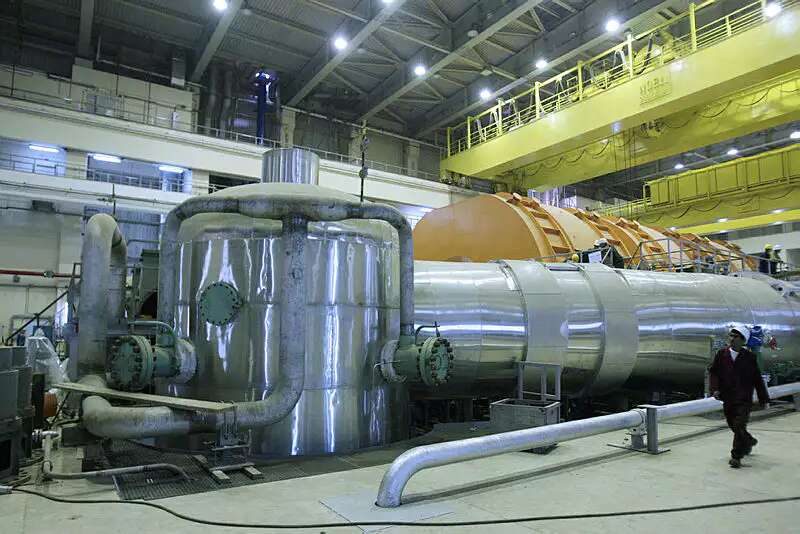
You believe the current conflict will remain below the nuclear threshold. How so?
"Over the years, there has been a strong international norm known as 'the nuclear taboo.' In other words, any country developing nuclear weapons, whether considered 'good' or 'bad,' has learned and understood the nuclear logic that has existed since 1945, which dictates that such weapons should not be used. They are weapons for ultimate deterrence.
"Of course, these things are enshrined in the famous Non-Proliferation Treaty (NPT). The countries that signed the treaty, including Iran, are committed to a complete ban on the use of nuclear weapons, especially against non-nuclear states. In the end, the presence of nuclear weapons maintains the highest level of international order. Furthermore, over the years, there are those who claim and prove it numerically that there has been a significant decrease in the number of wars worldwide due to nuclear weapons.
"To be more specific about the current conflict, Israel needs to make it clear to the Iranians that any harm to Israel's strategic assets or massive missile fire towards population centers will elicit a suitable response. The Houthis in Yemen have already understood this after their port went up in flames."
But the Iranians didn't understand. In the previous April attack, four warheads of 'Amad' missiles hit the Nevatim base. Twelve sirens even sounded in Dimona. Theoretically, and I'm not referring specifically to Israel here, is a deliberate attack on a nuclear facility equivalent to using a nuclear weapon?
"Absolutely not. Every country's nuclear systems and facilities are protected against conventional weapon attacks. I doubt the Iranians aimed their missiles at a sensitive facility in Dimona. From all indications, they aimed at the Air Force base in the Negev. In any case, as I mentioned earlier, any Iranian attack on a strategic Israeli asset will be met with the harshest response.
"By the way, it's important to remember that we have no real reason for war against the Iranian people, quite the opposite. Iran is ruled by a regime hated by most Iranians. Therefore, Israel must ensure it does not harm Iranian civilians, only regime assets."
Explain.
"We have the capability to hit their oil fields, which is a very serious matter – because the Chinese have a deal to buy and purchase oil from Iran for the next 25 years. If China wants to ensure a steady oil supply from Iran, it will have to restrain Tehran because damage to the oil fields could leave the Chinese freezing. But if there are casualties in Tel Aviv from missiles, let the Chinese freeze. After all, China will not go to war against us. Israel cannot live in fear that Iran may have nuclear weapons in the future. We must not allow them to turn us into hostages of the Iranian nuclear threat.
"Another important point that Israelis do not sufficiently understand: Iran is a militarily and economically weak country. The ayatollahs' regime fears for its future, which is why they have avoided investing in strengthening the army, fearing it would support the overthrow of their regime. As a result, a hybrid entity with limited power was created, called the Revolutionary Guards. Their air force is outdated and irrelevant, and they pose no threat. We, on the other hand, can do as we please in Tehran. The Iranians are highly vulnerable, but Israeli citizens are losing sleep at night out of fear, and unjustifiably so. The Iranians are highly exposed and have more reasons to fear than we do. They have simply developed a way to fight Israel through third parties – the Houthis and Hezbollah."
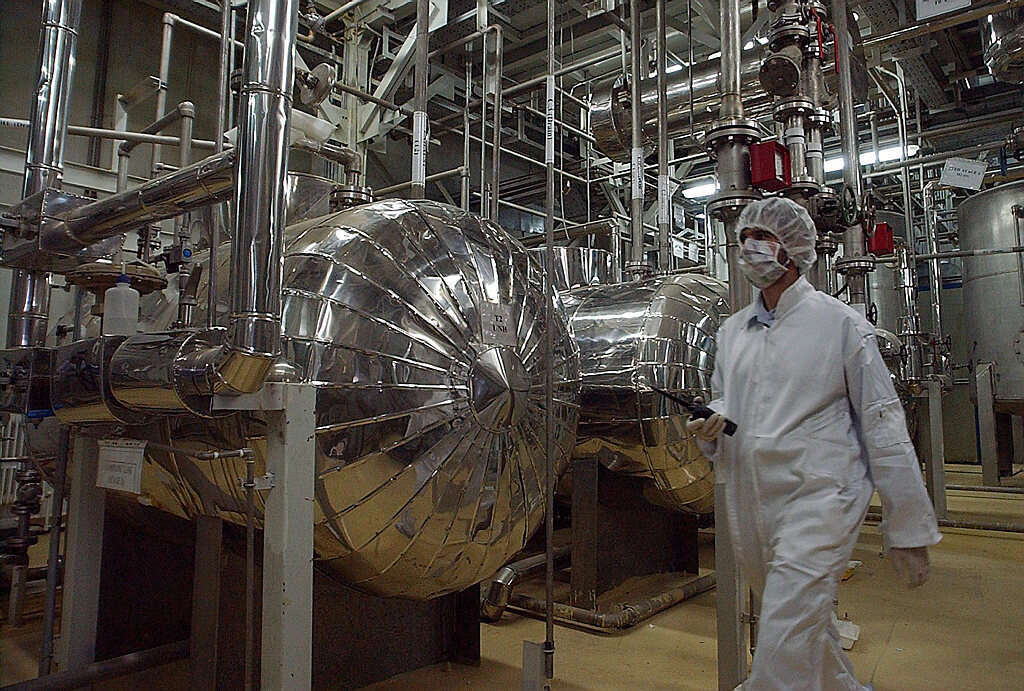
Rabin's Concerns
In 2031, our array of concerns is expected to change. This is the year when the nuclear agreement with Iran expires, which may bring it to a completely different stage in its project, if it doesn't happen much sooner. What will be Israel's deterrence strategy against a nuclear-armed Iran, and how will it affect the policy of ambiguity?
"The policy of ambiguity is fantastic and will be effective for us until mid-2031 and possibly beyond. Fortunately, we did not have to pay a political price at the time for developing nuclear weapons, according to foreign reports. The decision to abandon the ambiguity policy depends on international circumstances.
"Firstly, it's important to remember that it's not at all certain that Iran will rush to declare it has nuclear weapons. If it does declare itself a nuclear state with Chinese and Russian backing, we'll have a problem. We might have to inform the U.S. that we are ending the ambiguity. This should, of course, be done with American consent because, according to foreign reports, it was agreed in the Golda-Nixon understandings that the U.S. would agree that Israel could have nuclear weapons as long as it did not declare it. But if Iran becomes an illegitimate nuclear state, like North Korea, it's likely to face crippling sanctions – so there's no real reason to abandon the ambiguity policy."
I want to go back to an interesting chapter you wrote in your book "Dimona – Israel's Nuclear Deterrence". The chapter is titled: "Israel Without the Bomb, an Alternative History." What would our security reality look like today vis-à-vis Iran, Hezbollah, and the Houthis if Israel did not have a nuclear program, as is reported by foreign sources?
"The threats would be the same. Iran and Hezbollah are not fazed by nuclear weapons, as mentioned. The reality would be exactly as it is today, except for the panic that Israeli governments in the 1980s experienced due to Iraq's and later Iran's nuclear programs. Back then, Israel would likely have initiated an accelerated program to develop a military nuclear capability in response. This would have led us to develop nuclear weapons in a short period, but the costs we would have paid would have been higher."
Yitzhak Rabin feared the Iranian threat, and he is certainly not the only one. If we look at this from the other side, how much do leaders fear initiating the use of nuclear weapons?
"Every leader understands the clear dangers posed by that. That's why democratic countries are not preoccupied with this issue. I'll share an anecdote that reflects the whole story: In the U.S., a document is issued annually summarizing the U.S.'s nuclear strategy. It is supposedly updated every year, but in reality – there are no real changes and nothing to update, because it's clear to Americans that nuclear weapons are not to be used. We're trying to save the planet from global warming and sweating through the summer months, so use nuclear weapons?"
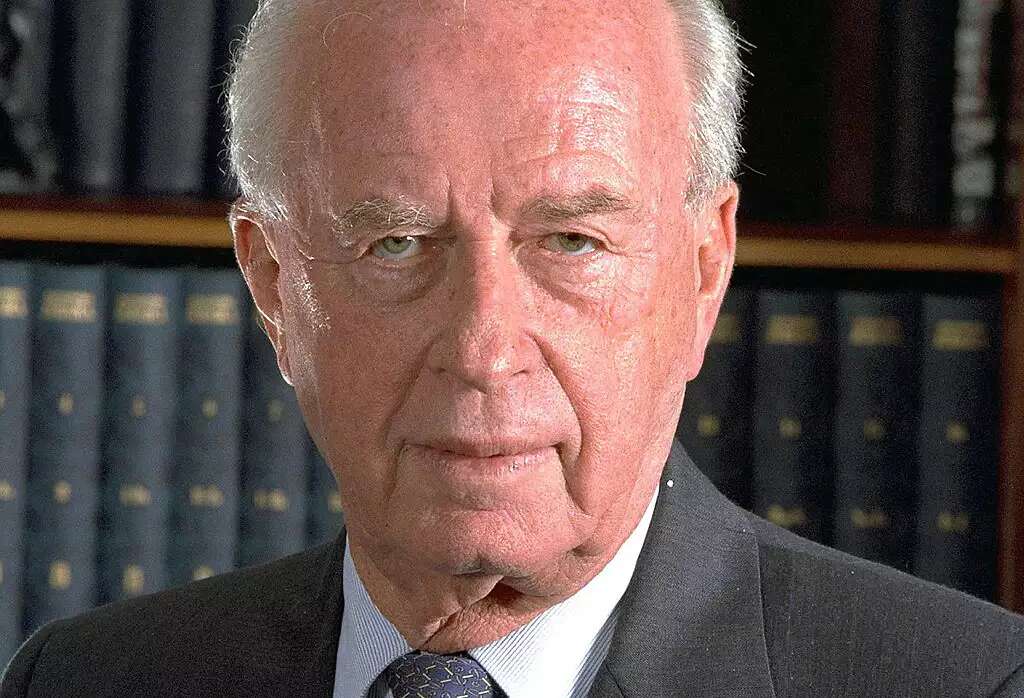
Are you including Putin in your remarks? Just three months ago, he ordered a nuclear drill.
"It's true that Russia is concerned with nuclear weapons, especially after it was nearly defeated by Ukraine. Putin declared that he has nuclear weapons, and at that time, there was enormous panic worldwide for two hours following an unexplained explosion. In the end, it turned out there was no nuclear explosion. Putin certainly went through some tough moments in the war against Ukraine and tried to leverage anything possible, but despite all the threats, he never actually came close to pressing the button."
The Red Button Protocol
In the US, there have been recent attempts to develop a protocol for when the red button needs to be pressed. Nobody wants to use these weapons, but the infrastructure is being prepared for it.
"The procedures don't really change. The Cold War ended in 1989, and military powers that threaten the global balance, like Nazi Germany or Japan during World War II, have faded from the world. So why do countries invest in this? Because it's a status symbol. The issue of use is a different phase because any country that uses nuclear weapons knows it could spark a world war. This is also related to the fact that, in terms of nuclear weapons, there is a global policeman – the U.S. It initiated the treaty and ensured it would be eternal, without an expiration date. The world accepted the logic that this is a weapon that has no place in use."
At least not for a first strike. In 1983, Thomas Schelling and Israeli Nobel laureate in economics Robert Aumann planned a classified war game centered on nuclear warfare. The participants in the game admitted that the results were terrifying, and every time the ending was the same - chaos.
"Absolutely. Once the first use happens, we are in a completely different story."

